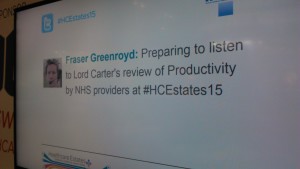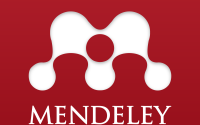Healthcare Estates Conference 2015
Tuesday 20th and Wednesday 21st October 2015 held the annual Healthcare Estates conference in Manchester. The majority of delegates were those working in NHS estates, though there were other professions including architects, engineers, chief executives and researchers. I attended the conference in my capacity as a Research Engineer to find out some of the developments in insights currently being utilised in healthcare estates.
Day 1 – Tuesday 20th
The first day saw the conference start at 10:00 with the opening address. I arrived early and registered early (just as well as the queues became quite long rather quickly) and received a delegates bag – a laptop bag branded with the conference details which became useful for storing leaflets and notes in during the conference. From here I decided to have a wander around the exhibition area where companies of various types were presumably attempting to entice the estates managers into purchasing their equipment. The exhibitors ranged from water specialists (which included a range of taps and treatments to prevent legionnaires disease within water supplies), fire specialists, waste specialists, door specialists, lighting specialists, parking specialists, along with architecture firms and specialist services.
Of the exhibitors, I took a look at the architecture firms initially and looked at some of the case studies on the walls. It was still early and people were still getting set up so I opted against disturbing anyone too much, but I noted down the names of architects that I intend to have a follow-up on when I return to the office.
At 10:00 the conference opened with a key-note speech on Building Information Modelling (BIM) in healthcare estates design. This was followed by concurrent sessions across four rooms, so I had to choose which presentations to go to. I aligned my presentation choices to my research, which started with some BIM presentations before lunch. During lunch I caught up with my academic supervisor, Professor Andrew Price and his co-speaker Efthimia Pantzartzis. After lunch I attended Andrew and Efthimia’s presentation on their work in updating the Dementia HBN. This meant not visiting Andy Parker (BuroHappold) and Howard Jones’ (RUH Bath) presentation on using Smart tools in healthcare estate design as it clashed, however, as the work presented by Andy and Howard is the work which I’ve also worked on with the Smart team, I felt it served better purpose to attend other sessions.
After the afternoon presentations there was a networking drinks period where I spoke with Andrew and Efthimia further. This was followed by the evening dinner which I did not attend, so can make no comment on.
Day 2 – Wednesday 21st
Day 2 started at 09:30am with a key-note speech on the devolution of healthcare in the Greater Manchester area. It was an interesting talk with plenty of food for thought across the rest of the UK if the project is a success. This was followed by other presentations, of which I attended those related to efficiency and standards, prior to a key-note speech by Lord Carter.
Lord Carter presented the work by his team on producing the Adjusted Treatment Index (ATI) as a measure of efficiency and productivity within the NHS. He highlighted four ‘big buckets’ of spending within the NHS and how the NHS has some of the best utilisation in the world, but is poor in operational efficiency and this is where improvements could be made.
After Lord Carter’s presentation, there was little left of the day but I attended presentations looking at efficiency and how sound can impact on staff well-being and patient recovery – a topic I became interested in earlier in the year. These presentations then concluded the conference which finished at around 16:00.
Overall, I thought the conference was enjoyable and well laid out. It was a shame that there were many talks which I would have enjoyed occurring at the same time but that’s the nature of these things, and I feel it was worth attending. Hopefully, I shall be in a position to attend next years conference and see how things have changed (or not) in healthcare estates.


